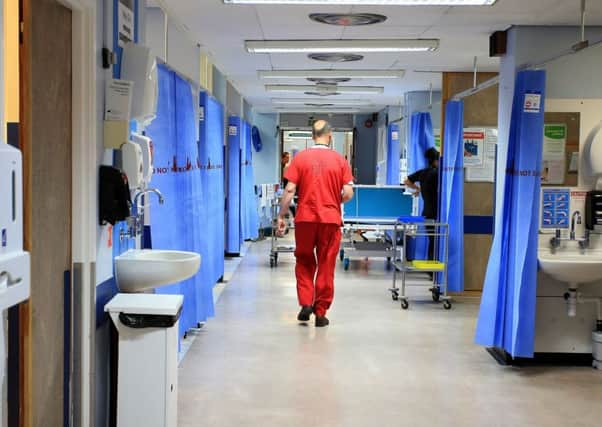Leader comment: It's time to look after our ailing NHS


For Labour, the health service is suffering from a “winter meltdown” while the Conservatives branded single-crew ambulances as “unacceptable”, given the need to both treat a casualty and drive them to hospital.
The two opposition parties laid the blame squarely at the door of the SNP Government. While the buck does indeed stop with Nicola Sturgeon and co and the problems are theirs to fix, the provision of healthcare is under severe pressure across Britain as demand rises, our population ages and scientists make often expensive medical advances.
Advertisement
Hide AdAdvertisement
Hide AdThe office workers who stepped into the breach during “exceptional circumstances” in NHS Lanarkshire to “support their clinical colleagues” by doing vital cleaning work should be commended. But it is shocking that such breaches can occur.
Such a situation adds considerable weight to the case for a fundamental rethink of how we fund the NHS and how that money is spent. In England, NHS trusts are increasingly treating private patients. If Scotland is to avoid taking the same course, we may now have to bite the bullet and give the health service more money – this was certainly the message from Labour’s Anas Sarwar.
The SNP Government recently proposed the first ‘tartan tax’ rises in its draft budget – a major step, but the sums raised would be relatively modest. Finance Secretary Derek Mackay said he had been told by experts that attempting to raise more would backfire because wealthy people would rearrange their affairs to pay less.
If the necessary funds cannot be raised from extra taxation, spending cuts in other areas may be another bullet we must bite. A renewed efficiency drive represents a third strategy. One significant issue – bed-blocking – has been talked about for years and yet continues to be a headache for hospitals. Improving social care and better integrating it with the health service would surely be a cost-effective way of helping the health service deal with the sick, not those who need a little looking after. Whatever the remedy, it is clear our health service is ailing and needs help.
